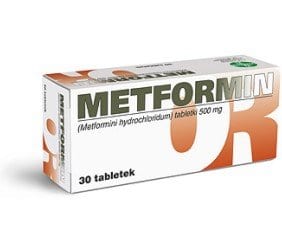 A new study from the University of Ulster reveals a possible drug that is designed to treat diabetic patients who suffer from neurodegenerative diseases such as Alzheimer’s disease.
A new study from the University of Ulster reveals a possible drug that is designed to treat diabetic patients who suffer from neurodegenerative diseases such as Alzheimer’s disease.
Alzheimer’s disease has long been associated with type 2 diabetes. When insulin cannot get to the brain, it can cause damaged nerve cells, which leads to different neurodegenerative diseases. It is believed by scientists that the same drugs can also have positive benefits for keeping brain cells healthy as well.
Professor Christian Hölscher and his team from the Biomedical Sciences Research Institute on the Coleraine campus used an experimental drug called (Val8) GLP-1.
Through the drug, a protein called GLP-1 is stimulated. This helps the body control its response to blood sugar. The study scientists treated healthy mice with this drug and then studied the effects that appeared on the brain. It is typically hard for drugs to pass from the blood to the brain however the study team found that when the drugs entered the brain they appeared to have no side effects as well, in the dosage amount that was tested.
On the other hand, the drug did promote new brain cell growth in the hippocampus, which is the area of the brain that controls memory, motor/cognitive skills. In finding this, it shows that the GLP-1 may be very important for the production of new nerve cells, the mouse’s brain.
By blocking the effect of the GLP-1 in the mouse’s brain, the mice did poorly when it came to its memory and in learning. However, in booting the GLP-1, it appeared to have no effect.
“Here at the Biomedical Sciences Research Institute, we are really interested in the potential of diabetes drugs for protecting brain cells from damage and even promoting new brain cells to grow. This could have huge implications for diseases like Alzheimer’s or Parkinson’s, where brain cells are lost.” Professor Hölscher said.
“It is very encouraging that the experimental drug we tested, (Val8) GLP-1, entered the brain and our work suggests that GLP-1 could be a really important target for boosting memory. While we didn’t see benefits on learning and memory in these healthy mice, we are keen to test the drugs in mice with signs of Alzheimer’s disease, where we could see real improvements.”
“We are pleased to have supported this early stage research, suggesting that this experimental diabetes drug could also promote the growth of new brain cells. While we know losing brain cells is a key feature of Alzheimer’s, there is a long way to go before we would know whether this drug could benefit people with the disease.” Dr. Simon Ridley, Head of Research at Alzheimer’s Research UK, said.
“This research will help us understand the factors that keep nerve cells healthy, knowledge that could hold vital clues to tackling Alzheimer’s. With over half a million people in the UK living with the disease, learning more about how to keep our brain cells healthy is of vital importance. Funding for dementia research lags far behind that of other common diseases, but is essential if we are to realize the true potential of research like this.”
 Diabetes is a common problem all around the world. In just America alone, more than 24 million people have type 2 diabetes. Diabetes can cause many different
Diabetes is a common problem all around the world. In just America alone, more than 24 million people have type 2 diabetes. Diabetes can cause many different  With diabetes becoming an even bigger problem around the world, more and more medical advances are being discovered to try and find a cure for the disease.
With diabetes becoming an even bigger problem around the world, more and more medical advances are being discovered to try and find a cure for the disease. A trial led by Carla Greenbaum, MD, Diabetes Research Program director at Benaroya Research Institute (BRI) at Virginia Mason and sponsored by the Immune Tolerance Network (ITN) and funded by the National Institutes of Health shows a new break in reversing autoimmunity in Type 1 diabetes.
A trial led by Carla Greenbaum, MD, Diabetes Research Program director at Benaroya Research Institute (BRI) at Virginia Mason and sponsored by the Immune Tolerance Network (ITN) and funded by the National Institutes of Health shows a new break in reversing autoimmunity in Type 1 diabetes. Diabetes affects more than 24 million people in the United States. New technology and medical advances surface everyday that get us one step closer to find the cure.
Diabetes affects more than 24 million people in the United States. New technology and medical advances surface everyday that get us one step closer to find the cure. New findings suggest that a group of hormone-producing cells in the brain can actually control blood sugar levels. This new finding could result in both a diabetes treatment and a weight loss drug.
New findings suggest that a group of hormone-producing cells in the brain can actually control blood sugar levels. This new finding could result in both a diabetes treatment and a weight loss drug. A new chemical could be the answer to treating metabolic disorders such as type 2 diabetes suggests biologists at the UC San Diego.
A new chemical could be the answer to treating metabolic disorders such as type 2 diabetes suggests biologists at the UC San Diego. Joslin Diabetes Center scientists have recently indentified biological mechanisms through glucagon-like peptide-1 (GLP-1), which is known as a gut hormone that protects against
Joslin Diabetes Center scientists have recently indentified biological mechanisms through glucagon-like peptide-1 (GLP-1), which is known as a gut hormone that protects against  An extended trial of a drug that is commonly used for people who have been diagnosed with type 2 diabetes, an oral DPP-4 inhibitor Linagliptin (Tradjenta) is safe and effective in its ability to lower glucose levels for up to 102 weeks by itself or with a combination of other oral anti-diabetic
An extended trial of a drug that is commonly used for people who have been diagnosed with type 2 diabetes, an oral DPP-4 inhibitor Linagliptin (Tradjenta) is safe and effective in its ability to lower glucose levels for up to 102 weeks by itself or with a combination of other oral anti-diabetic 